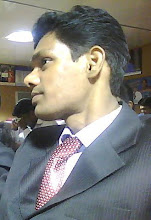Computer-based visuals
The technology is rapidly changing. These days, using a laptop computer and presentation software such as Microsoft PowerPoint is the norm. Add a screen and other equipment, and you can produce and display dramatic visual aids, including animation and simulations. Computer-based visuals are becoming the standard for most technical, educational or business-related presentations. Useful for large and small audiences, they can convey simple as well as complex information. If you use a remote control, you can change the visuals while walking about the room. To accomplish this you’ll need a data projector, a device that accepts output from a computer and projects it onto a screen. Plan to create the visuals in advance, to ensure all of the electronic components work together and be sure to rehearse with them.
Keep your visual aids:
- Visible
- Simple
- Colorful, but don't let them upstage you
- Justified by the content -- not too many or too few slides
For effective PowerPoint shows:
- Don't read the slides to your audience!
- Make your text large.
- Choose colors that make the text easier to read.
- Use bullet points instead of full sentences.
- Don't let the text or graphics fly around too much.
- Avoid charts and diagrams that are hard to see.
Most Importantly - Remember, you control the presentation; don’t let it control you. PowerPoint should be a “visual aid” – not the entire show.






